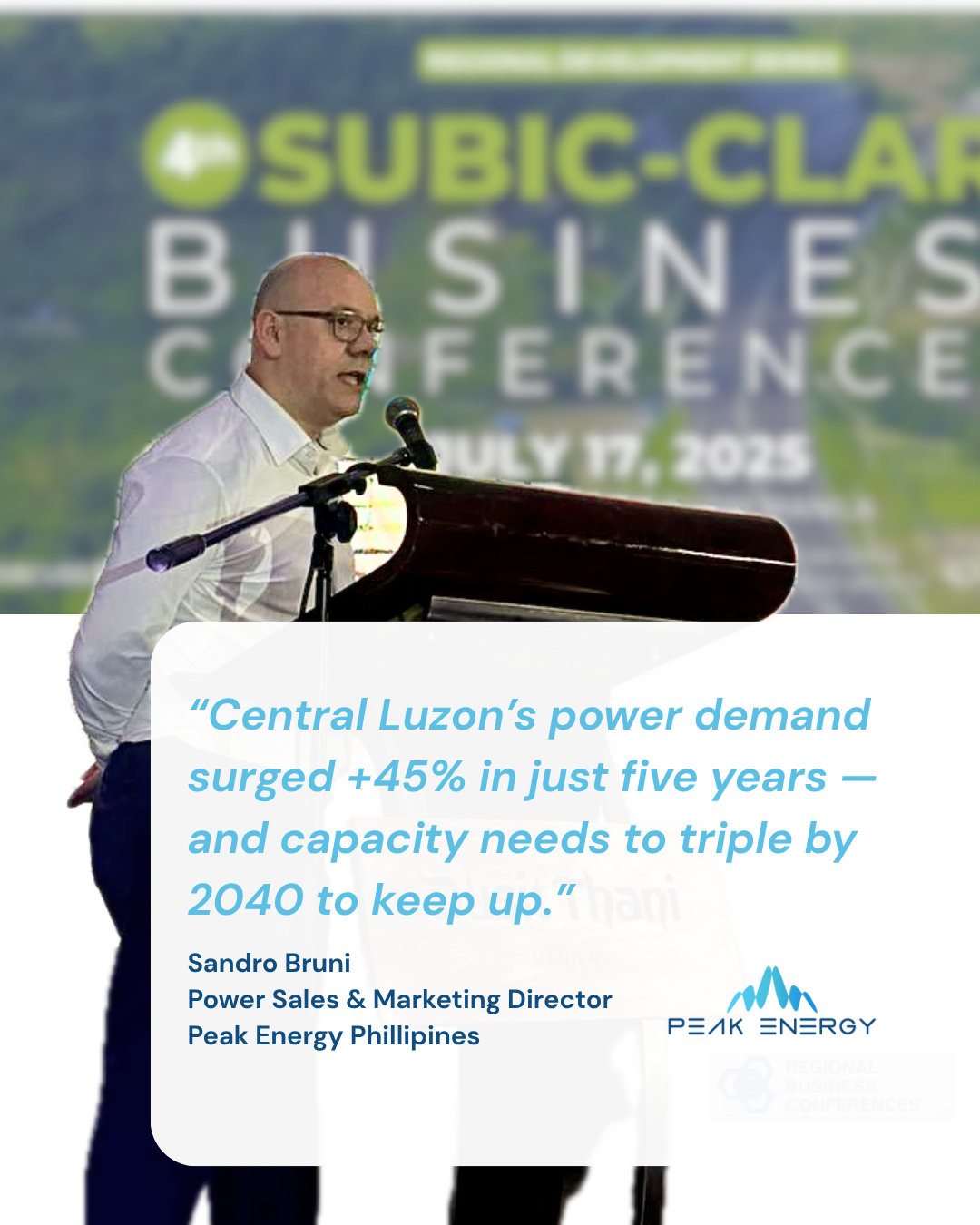
News - Philippines Energy Transition: Solar Capacity and Execution Gaps Subic-Clark Conference 2025

At the 4th Subic-Clark Business Conference 2025 in Manila, organized organised by leading European chambers of commerce (ICCPI, DutchCham, AHK, CCI France Philippines, La Cámara, Advantage Austria, NordCham), energy security emerged as a central theme — and a pressing challenge for the Philippines.
Sandro Bruni, Power Sales & Marketing Director at Peak Energy Philippines, joined the conference to present a direct assessment of where the country stands, and what’s needed to meet its economic ambitions.
The Gap Between Aspiration and Capacity
Sandro began with a striking comparison:
“Japan operates on over 160 GW of installed capacity. The Philippines — with similar land and population — runs on just 17 GW.”
This 10x disparity isn’t just technical. It speaks to a broader question: can the Philippines deliver on its 4–6% annual GDP growth targets without accelerating grid-scale investment?
According to Department of Energy projections, industrial demand is expected to rise by over 50% by 2040. Yet the country’s installed capacity would need to triple to keep pace — from ~27 GW today to more than 75 GW. Without reliable power, growth bottlenecks are inevitable.
Solar: Competitive, Scalable, and Urgently Needed
Bruni underscored the cost competitiveness of solar, highlighting that:
- Rooftop PPAs are reaching PHP 3/kWh over 15-year terms.
- LCOE benchmarks already favor renewables over conventional sources in many segments.
- In regions like Central Luzon, where demand grew over 45% between 2017 and 2022, solar is no longer a future solution — it's a current necessity.
Why Execution Matters More Than Ever
Delivering renewable energy at this scale requires more than policy ambition or low-cost technology. It demands partners with the technical experience, financial strength, and local delivery networks to execute reliably — in markets where permitting, procurement, and policy complexity often slow projects down.
That is where Peak Energy is focused:
- Combining global project delivery expertise with deep on-the-ground knowledge
- Backed by Stonepeak, one of the world’s largest infrastructure investors
- Already managing 500 MW of operating assets and over 1 GW in development across the region
As the Philippines pushes to expand power access and reduce industrial exposure to energy volatility, solar will play a central role. But success will hinge on execution certainty — not just ambition.
For industrial players, developers, and government agencies, the next phase of growth will be shaped by those who can deliver clean power at speed, scale, and with zero excuses.
Contact our team in the Philippines here

